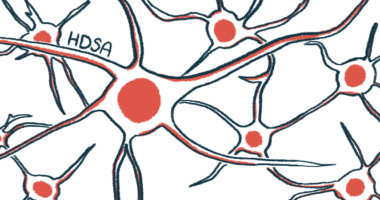Roche Set to Start 2 Clinical Studies of Potential Huntington’s Therapy RG6042

Two new clinical studies of Roche’s investigational therapy RG6042 for Huntington’s disease (HD) are planned to start by the end of 2018 and will begin enrolling participants by early 2019.
These studies will help researchers to understand Huntington’s progression and the therapeutic effectiveness of RG6042, which may “potentially be the biggest breakthrough in neurodegenerative disease in the past 25 years,” C. Frank Bennett, PhD, Ionis’ senior vice president of research and franchise leader for the neurological programs, said in an interview with Ionis Pharmaceuticals, the original developer of RG6042.
The upcoming HD Natural History study and the Phase 3 GENERATION HD1 trial were announced at the recent 2018 European Huntington’s Disease Network plenary meeting in Vienna.
RG6042, formerly known as IONIS-HTTRx, is an antisense oligonucleotide treatment. It is intended to target and destroy all forms of mutant huntingtin protein (mHTT) — the underlying cause of Huntington’s — potentially slowing or stopping disease progression in all Huntington’s patients.
Data from a previous Phase 1/2 trial (NCT02519036) in 46 adults with early-stage Huntington’s “demonstrated, for the first time, that we could reduce the production of the toxic mutant Huntington’s protein,” Bennett said.
In the trial, RG6042 significantly lowered the levels of mHTT in the cerebral spinal fluid — a liquid found in the brain and spinal cord — by up to 60% in patients receiving either the highest or second-highest dose.
The 15-month HD Natural History study will assess the correlation between mHTT in cerebral spinal fluid and in other clinical measures of Huntington’s, and will also evaluate wearable devices to measure disease burden. There is no therapeutic treatment in this study, as the goal is to understand the natural progression of the disease.
It will include up to 100 early-stage symptomatic patients at sites in the U.S., U.K., Canada, and Germany, and its results are expected to provide valuable help in conducting the Phase 3 GENERATION HD1 study.
“This study will provide high-quality, longitudinal data to help inform patients and clinicians,” Bennett said.
The two-year, global GENERATION HD1 trial will evaluate the long-term safety and effectiveness of RG6042 in up to 660 patients with symptoms of Huntington’s. It will be “the world’s first Phase 3 study to measure the effect” of a therapy that lowers the amount of mHTT, according to Bennett. The trial will be conducted at 80 to 90 sites in 15 countries around the world.
Developing an effective Huntington’s treatment “would be a historic moment for Huntington’s disease patients, their loved ones and the healthcare providers who treat and take care of HD patients,” Bennett said. “It also would be an important advance for the neurodegenerative field in general.”
Now that they’ve shown that the targeted antisense therapy gets to the intended brain target in Huntington’s, the team next plans to assess whether a reduction in mHTT leads to clinical benefit in patients: “If we can do this, the hope is that this will herald a new era for the treatment of neurodegenerative diseases,” Bennett said.
Such positive results would represent the second demonstration that a neurodegenerative disorder can be effectively treated with antisense therapies, with spinal muscular atrophy being the first, Bennett said, adding that findings in Huntington’s could be applied in studies of Alzheimer’s, Parkinson’s, and amyotrophic lateral sclerosis.
Ionis’ work in Huntington’s started about a decade ago and followed Bennett’s long-term interest in the disease and his team’s belief that targeting mHTT production with antisense treatments could be effective. Bennett noted that this contrasts with other companies’ approach of masking symptoms, rather than targeting the cause of the disease.
“It was thought by many to be too difficult to target the root cause of HD, but we have demonstrated that it actually can be done,” he said.
In December 2017, Roche acquired development and marketing rights to RG6042 from Ionis. According to Bennett, the choice of Roche was based on the company’s experience, plan of action, enthusiasm, commitment, and the possible rapid development of a disease-modifying Huntington’s therapy that it could work on with Ionis.
“We couldn’t be happier with our collaboration and the progress of the program,” he said.
Recently, the European Medicines Agency granted priority medicine (PRIME) designation to RG6042 for the treatment of Huntington’s, which provides a pathway for accelerated therapy assessment and review.






